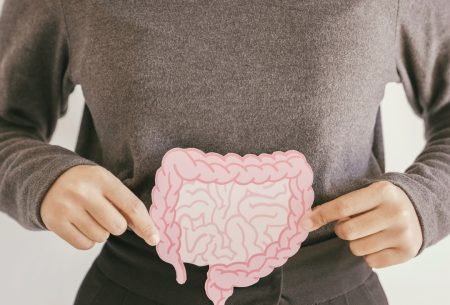Faecal microbiota transplant (or FMT) is exactly what it sounds like, transplanting the poop from a healthy person (the donor) to treat a disease or condition in another.
Now, as distasteful as it seems, it’s a hugely promising area, with exceptional cure rates achieved in people with gut infections (specifically clostridium difficile, C. diff), which can prove deadly.
Despite the recent hype surrounding FMT, it dates back to the 4th century, when it was said to be used to treat food poisoning and severe diarrhoea. More recently, researchers have begun to explore the therapeutic potential of FMT in other areas where patients present with an altered gut bacteria profile, such as irritable bowel syndrome.
For those who are totally grossed out by this concept, don’t worry, researchers have started to explore re-creating an ‘artificial poop’ that can be put into capsules and taken orally as opposed to transplanting the poop directly up one’s back end.
In one study, researchers from Copenhagen randomised 52 adults with IBS to have either FMT (in capsule form) or a placebo capsule for 12 days. The participants’ symptoms were then monitored for six months and both the participants and researchers were blinded to who got which intervention to limit bias.
Interestingly, despite there being a noticeable shift in the gut bacteria of those who received the FMT compared to placebo after the intervention, it was the placebo group who reported a significant benefit in the severity of IBS symptoms at 3 and 6 months post-treatment. Talk about a paradox!
What does this mean for those with IBS?
Now of course this is just a single study so we can’t make any broad sweeping conclusions. But one can’t help question whether FMT could indeed do more harm than good when it comes to IBS. While we wait for further studies, I must stress that although there are a growing number of private clinics offering FMT for different conditions, currently, beyond the well-proven example of hospital-based treatment for C. diff, there is a lack of evidence for FMT (not just for IBS but all other conditions). I appreciate the temptation for people suffering, but please, guys, be aware that this type of therapy may not just waste your time and money but actually leave you worse off in the long run as this study has suggested.
Does this mean you just have to put up with your IBS symptoms? Certainly not! There is good evidence to support the dietary management of IBS which I cover in detail in my book, Eat Yourself Healthy & Love Your Gut. Or of course, if you have access, your gut-specialist dietitian can help you get on top of your symptoms.
Reference: Halkjær SI, Christensen AH, Lo BZS, et al. Faecal microbiota transplantation alters gut microbiota in patients with irritable bowel syndrome: results from a randomised, double-blind placebo-controlled study. Gut Epub ahead of print: 7 August 2018. doi: 10.1136/gutjnl-2018-316434.














